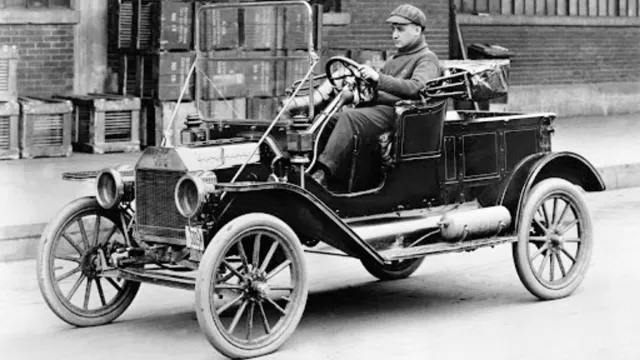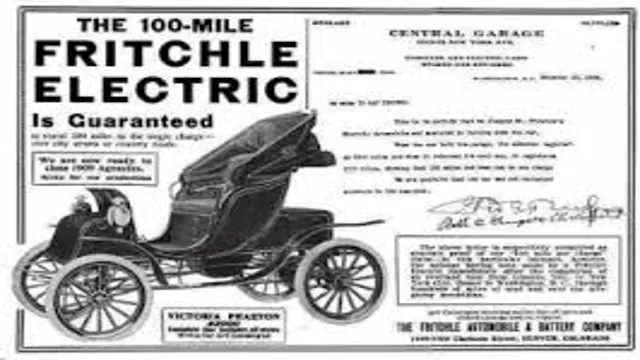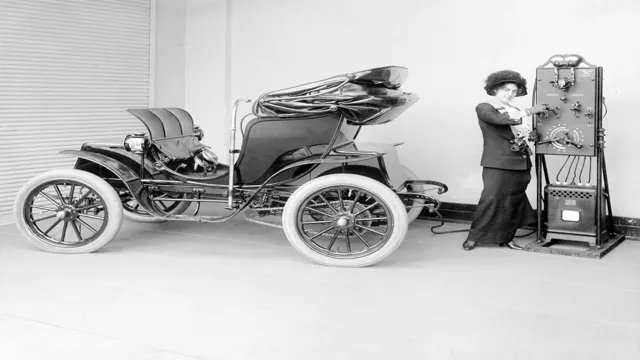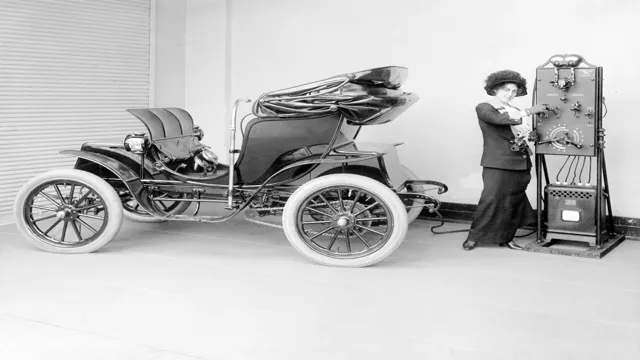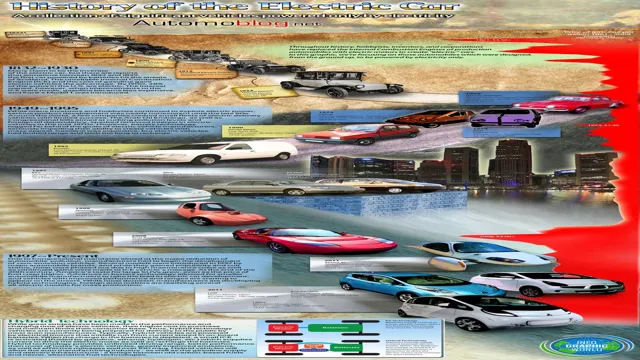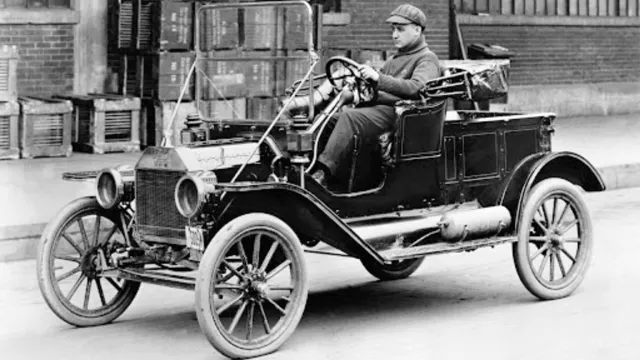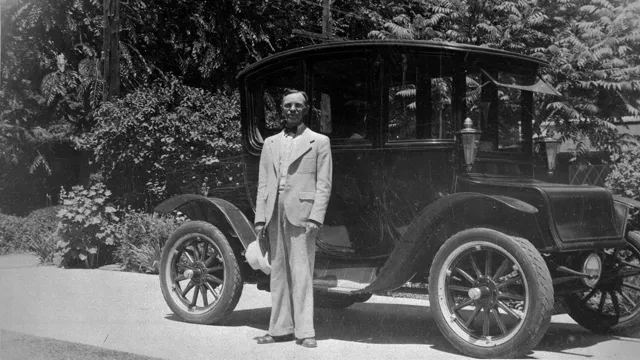Revving up the Future: Exploring the Fascinating Chevy Electric Car History
Have you ever wondered about the history of electric cars produced by Chevrolet? From the 1970s until now, Chevy has been a key player in the development of electric vehicles. These cars have come a long way from their early days, with newer models offering increased range and more modern features. In this blog post, we’ll take a closer look at the history of Chevy’s electric cars, from the first attempts at designing an electric vehicle to the current lineup of sleek, efficient models.
Get ready to learn about the evolution and impact of Chevy’s electric cars on the automotive industry.
Early Electric Vehicles
When you think about the history of Chevy electric cars, you might be surprised to learn that the company actually began experimenting with electric vehicles way back in the early 1900s. In fact, Chevy produced its first electric car, the Electrovan, in 1964 – long before the more recent boom in electric vehicle popularity. Although the Electrovan was primarily used for research and development purposes, it proved that Chevy had a strong interest in exploring electric car technology.
Over the years, Chevy continued to experiment with different electric vehicles and technologies, but it wasn’t until 2010 that the company released its first modern electric car, the Chevy Volt. Since then, Chevy has continued to release new electric car models, including the all-electric Chevy Bolt. With a long history of electric vehicle innovation and a commitment to producing environmentally sustainable cars, Chevy has established itself as a leader in the world of electric vehicles.
1905-1970s: Introducing the Electrovair and Electrovette
The early 1900s saw the introduction of electric vehicles, including the Electrovair and Electrovette. These vehicles were developed by General Motors in response to a growing demand for environmentally-friendly transportation options. The Electrovair was introduced in 1966 and was based on the Chevrolet Corvair.
It had a range of over 100 miles on a single charge and was used primarily for factory and laboratory work. The Electrovette, on the other hand, was a small electric car that was designed for inner-city use. It was introduced in the 1970s and had a range of around 50 miles.
These early electric vehicles paved the way for the development of more advanced technologies in modern electric cars today. While there were significant challenges in terms of performance, range, and charging infrastructure, the development of these early electric vehicles marked a significant milestone in the history of sustainable transportation.
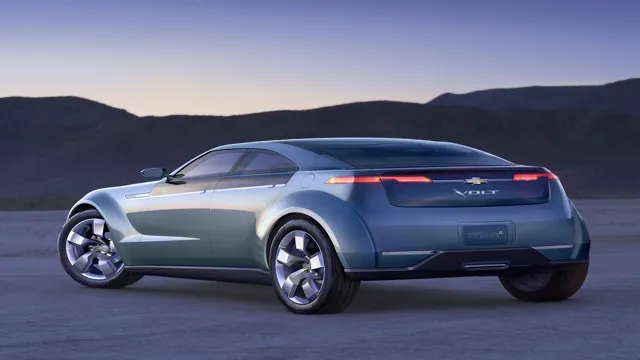
The Modern Era of Chevy’s Electric Cars
Chevy’s electric car history dates back to the EV1, which was produced from 1996 to 199 However, it wasn’t until the modern era that Chevy really embraced electric cars. In 2010, the Chevy Volt debuted as a plug-in hybrid that could travel up to 40 miles on electricity alone.
Then in 2017, Chevy released the all-electric Bolt, which could travel up to 238 miles on a single charge. Since then, Chevy has continued to innovate and refine their electric vehicles, including the recently announced Bolt EUV, which features advanced driver-assistance technologies. Chevy’s commitment to electric cars has also been reflected in their decision to phase out gasoline-powered vehicles by 203
With a long history and a bright future, Chevy is leading the charge towards a more sustainable transportation system.
1990s-2010s: The EV1 and Spark EV
The 1990s saw Chevrolet make the bold move to introduce the EV1, an all-electric vehicle that promised to be the future of transportation. The EV1 was ahead of its time, with a range of up to 140 miles on a single charge. Unfortunately, due to a lack of infrastructure and support, the EV1 was ultimately discontinued in 200
However, Chevy continued to innovate and in 2013, the all-electric Spark EV was introduced. Offering a range of up to 82 miles, the Spark EV was praised for its quick acceleration and responsive handling. Despite being smaller than the EV1, the Spark EV proved to be more practical for urban driving and quickly gained a loyal following.
With the recent success of electric vehicles in the market, Chevy continues to lead the way with its latest electric offering, the Chevy Bolt EV. This all-electric vehicle has a range of up to 259 miles and has received numerous awards for its innovative design and performance. It’s clear that Chevy has come a long way in its electric vehicle offerings, and with the trend towards sustainability and green transportation, the future certainly looks bright for electric cars and the Chevy brand.
2016-present: The Bolt EV and Future Plans
Chevy’s modern era of electric cars started with the release of the Bolt EV in 201 This fully electric vehicle boasts impressive range and speedy acceleration. It offers drivers a unique experience that is both efficient and exhilarating.
Chevy has continued to invest in the future of electric cars by announcing plans to release thirty new electric models by 202 This will provide consumers with a range of options, from affordable everyday cars to high-performance luxury vehicles. With advancements in technology and an increased focus on environmental concerns, Chevy’s electric vehicles are becoming more popular and practical than ever before.
By leading the charge in this industry, Chevy is positioning itself as a leader in the future of electric cars.
Innovation and Advancements
Chevy has a rich electric car history that dates back to the 1990s when they introduced the electric Chevrolet S- This was one of the first electric pickup trucks available and was ahead of its time. Although it was not widely adopted, it showed the company’s commitment to electric vehicles.
Fast forward to 2010, and Chevy introduced the first-generation Volt, which was a plug-in hybrid that was well-received by consumers. Chevy continued to innovate and introduced the all-electric Bolt in 2017, which had a range of over 200 miles on a single charge. The Bolt was popular amongst consumers and helped to solidify Chevy’s position as one of the leading electric vehicle manufacturers.
In conclusion, Chevy has a long and varied history in the electric vehicle market, and they continue to innovate and improve their offerings to meet the growing demand for sustainable transportation options.
Battery Technology and Range
Battery technology and range are critical factors that affect the adoption of electric vehicles. In recent years, there has been a tremendous effort to improve both aspects, resulting in impressive advancements. Thanks to innovations in battery chemistry, electric car batteries can now offer extended range and faster charging times, making them more practical for everyday use.
One of the exciting developments is the use of solid-state batteries, which have a higher energy density, longer lifespan, and faster charging capabilities. However, more research is needed to bring the cost down and make them widely available. Another promising technology is Vehicle-to-Grid (V2G), which allows EVs to discharge their battery power to the grid during peak hours and recharge during off-peak hours, helping reduce grid stress and providing an additional revenue stream for EV owners.
As battery technology continues to evolve, the range anxiety that has been a significant concern for electric vehicle drivers will soon be a thing of the past.
Charging Infrastructure
Innovation and Advancements in Charging Infrastructure for electric vehicles have made it possible for convenient and reliable charging options to be available to EV drivers wherever they go. From wireless charging to high-speed DC chargers, the advancements in EV charging technology continue to make battery range anxiety a thing of the past. Additionally, smart charging solutions and data analytics have been developed to optimize charging capacity and reduce energy costs.
With the introduction of renewable energy sources like solar power and wind energy, EV charging infrastructure has become more efficient and eco-friendly. The future of charging infrastructure is bright and holds great potential for new and innovative solutions that will continue to meet the growing demands of EV drivers. As the shift towards sustainable transportation gains momentum, the charging infrastructure will play a critical role in supporting the mass adoption of electric vehicles.
Chevy’s Impact on the Electric Car Industry
Chevy has been at the forefront of the electric car industry for decades. Their Chevy Volt was one of the first plug-in hybrid cars available to consumers, and it quickly became a hit. Since then, Chevy has continued to innovate and push the boundaries when it comes to electric vehicles.
They were one of the first companies to introduce an affordable electric car, the Chevy Bolt, and it has since become a top contender in the market. Not only has Chevy impacted the electric car industry with their innovative designs, but they have also made electric cars more accessible to the average consumer. By offering affordable options, like the Bolt, Chevy is paving the way for a future where electric cars are not just a luxury, but a practical and accessible option for everyone.
Their history in the electric car industry is proof that you don’t have to sacrifice style and performance for sustainability.
Environmental Benefits
Chevy has had a significant impact on the electric car industry, primarily through its electric vehicle, the Chevy Bolt. By creating a high-performing and affordable electric car, Chevy has made it easier for the average person to make a positive impact on the environment. Electric cars emit little to no pollutants compared to gas-powered vehicles, which can have serious health effects on people and the planet.
Additionally, the Chevy Bolt uses regenerative braking technology, which converts energy lost during braking back into electricity and saves the battery’s charge. As a result, the Bolt’s battery range is longer than many other electric cars on the market, making it a better option for long-distance travel. Overall, Chevy’s dedication and innovation to create a mass-market electric car have made it easier for people to make environmentally conscious decisions and contribute to reducing carbon emissions.
Driving Change for a Sustainable Future
Chevy has been a driving force for change in the electric car industry, with their innovative and eco-friendly vehicles making a significant impact on the market. Their commitment to sustainability is evident in their production of vehicles such as the Chevy Bolt, a fully electric car with a range of over 200 miles per charge. This car has gained popularity among environmentally conscious consumers, with its sleek design, advanced technology, and impressive performance.
Chevy’s investment in electric vehicles has also led to the development of a robust charging network, allowing drivers to easily charge their cars on the go and making it more convenient to drive a fully electric vehicle. As consumers are becoming increasingly concerned about the impact of their choices on the environment, Chevy’s dedication to sustainability and innovation has put them at the forefront of the push for a more sustainable future.
Conclusion
After a long and winding road, Chevy has finally arrived at the destination of electric car excellence. From the early days of experimenting with hybrid technology to the launch of the game-changing Bolt, Chevy has proven itself to be a leader in the world of electric vehicles. With sleek designs, impressive mileage ranges, and an unwavering commitment to innovation, Chevy has propelled the electric car industry forward – and we can’t wait to see what they come up with next.
So whether you’re looking to save the environment, save money on gas, or simply drive the coolest car on the block, Chevy’s got you covered. Buckle up and get ready for an electrifying ride!”
FAQs
When did Chevrolet first introduce their electric car?
Chevrolet first introduced their electric car, the EV1, in 1996.
Was the Chevy Volt considered a fully electric car?
No, the Chevy Volt was a plug-in hybrid electric car, meaning it had both an electric motor and a gasoline engine.
What happened to the Chevy Spark EV?
The Chevy Spark EV was discontinued in 2016 due to low sales and the focus shifting towards the Bolt EV.
How does the range of the Chevy Bolt compare to other electric cars?
The Chevy Bolt has a range of 238 miles on a single charge, which is one of the longest ranges for an electric car in its price range.
